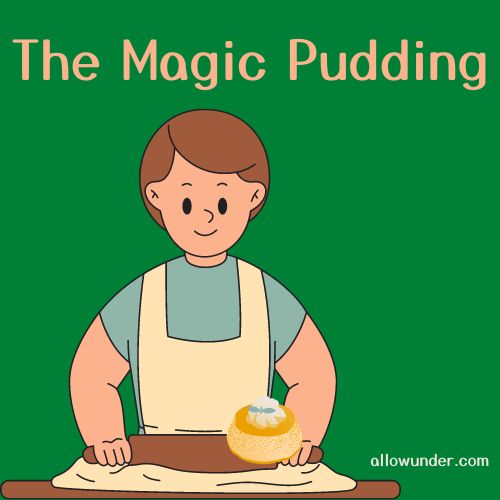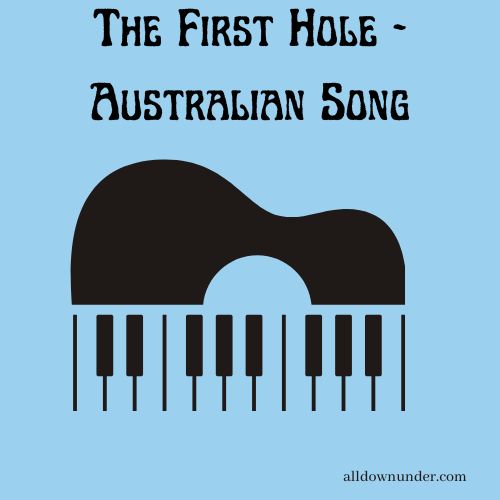Australian folk music!! Folk Music is always been an important aspect in the lives of Australian people that shows country’s traditional culture and rich cultural diversity in various forms. Folk music is one such music Australian people are fond of among all other types of music. Many Australian folk singers have provided a lot many variety folk songs to the country that tells country’s History and Folklore. This page is about one of the most popular Australian Folk Song, “Botany Bay” by Florian Pascal. Also I have included some information related to this song like history, versions, lyrics, etc. Continue reading to learn more about this popular Australian folk song.
Australian Folk Music
Australian Folk Music has been originated from a wide variety of immigrant cultures and especially those of indigenous Australian inhabitants. For Australians, folk music is the traditional music and the tradition in the sense of traditions related to traditions of other neighbouring countries in regards to historical, political, and similar ethnic origins. For example: countries like Canada, New Zealand, and United States.
Much of country’s history says the ‘Bush Music’ from Australia had been originated from the oral and folkloric tradition, which was later published 1980’s through Banjo Peterson’s Old Bush Songs. Most of the Banjo Paterson’s poems are set to music by Wallis and Matilda since 1980’s with distinctive themes and especially contributes the Australian bush music or bush band music.
Botany Bay
Botany Bay is an Australian classic folk song and has been a famous and popular song with attractive and catchy lyrics in Australia since many years. It appears to be originated from a burlesque melodrama, Little Jack Sheppard, which is staged at The Gaiety Theatre, London, England, in 1885. And later in Melbourne, Australia, in 1886. Actually, the show was written by William Yardley and Henry Pottinger Stephens and the music composed by Wilhelm Meyer Lutz. Finally, this show credits ‘Botany Bay’ as the ‘Old Air arr. Lutz’. Then the crediting for ‘Botany Bay’ was given to Florida Pascal. Florida Pascal was the pseudonym (a fictitious name, especially one used by an author) of the Joseph Williams, Jr. (1847–1923), a music composer and publisher composed the show’s music.
The first YouTube version of Botany Bay is sung by the Melbourne Aussie bush band, “The Sundowners”. Eventually, the second version is also released and sung by Lionel Long. Often, this song appears to be on internet or some websites as ‘Bound for Botany Bay’.
History
Actually, the song’s earliest history was less clear. People from 18th century claims that the song was a part of English Theatrical Productions and taken from Dion Boucicault’s stage show “Janet Pride” held in 1854 and incorporated into another song, “Little Jack Sheppard” in 1885 by Henry Stephens and William Yardley. Little Jack Shepherd played at Her Majesty’s Opera House, Melbourne in 1886 and in 1887, played at the Theatre Royal, Sydney. Eventually, the Australian folk song, Botany Bay has become a huge success and spread out to each and every corner of Australia just by word of mouth, becoming a most popular folk song.
On 29th April 1770, the Endeavour, a British ship under the command of Captain James Cook, moored in Botany Bay (later named as Botany Bay). On January 19, 1788 the first fleet Botany Bay with eleven vessels carried about 250 free settlers and 730 convicts. Now, Botany Bay is surrounded by Sydney suburbs.
Farewell to Old England forever
Farewell to my old pals as well
Farewell to the well-known Old Bailee
Where I once used to be such a swell
Singing too-rall, li-oo-rall, li-ad-di-ty,
Singing too-rall, li-oo-rall, li-ay,
Singing too-rall, li-oo-rall, li-ad-di-ty
Oh we are bound for Botany Bay.
There’s the captain as is our commandeer,
There’s bo’sun and all the ship’s crew
There’s first and the second class passengers,
Knows what we poor convicts goes through.
Singing too-rall, li-oo-rall, li-ad-di-ty,
Singing too-rall, li-oo-rall, li-ay,
Singing too-rall, li-oo-rall, li-ad-di-ty
Oh we are bound for Botany Bay.
‘Taint leaving Old England we cares about,
‘Taint ‘cos we mispells wot we knows
But becos all we light finger’d gentry
Hop’s around with a log on our toes.
Singing too-rall, li-oo-rall, li-ad-di-ty,
Singing too-rall, li-oo-rall, li-ay,
Singing too-rall, li-oo-rall, li-ad-di-ty
Oh we are bound for Botany Bay.
Oh had I the wings of a turtle-dove,
I’d soar on my pinions so high,
Slap bang to the arms of my Polly love,
And in her sweet presence I’d die.
Singing too-rall, li-oo-rall, li-ad-di-ty,
Singing too-rall, li-oo-rall, li-ay,
Singing too-rall, li-oo-rall, li-ad-di-ty
Oh we are bound for Botany Bay.
Now all my young Dookies and Duchesses,
Take warning from what I’ve to say,
Mind all is your own as you touch-es-es,
Or you’ll find us in Botany Bay.
Plot on Writing the Song
As I already told in the above paragraph, Bombay Bay was the first fleet arrived in Australia eighteenth century, a designated settlement with eleven vessels to carry convicts to Australia. So, basically the song plots on describing the period during eighteenth and nineteenth century, when even a small crime was supposed to sentence you for long years up to seven years. And the convicts are shipped off to Australian penal colonies by the British Government through a British ship named Endeavour. The first verse of the song, Botany Bay talks about these circumstances and explains this sentence was an alternative to incarceration in Britain. The second version is completely about describing the convict ships (which carry convicts to Australia) and finally the last verse is about giving warning to English boys and girls (referred as Dookies and Duchesses) on not to steal and in case of stealing leads them to wind up in Botany Bay.
Covers
The Australian most popular folk song, Botany Bay has become famous after the production of a comedy play, Little Jack Sheppard, which played in London in 1885 and Melbourne, Victoria in 1886. Over years, the song has been become the favourite song by most of the singers and musicians. Burl Ives, an American singer and actor of stage, screen, and radio, is one among those singers who got attracted to lyrics of Botany Bay, sung and recorded the song. This song is particularly played on compilations as a children’s song in Australia.
Also, the song has a history of being used as a reference during the research on transport of convicts to Australia. But later on in 1840, this practice in New South Wales has been ended in 1840.
Since the song has been played, sung, and recorded by many other singers from different countries resulting in different sources and variations by different performers. I have done some research on different versions of Botany Bay and created a list of five verses in which the chorus remains same as the original ones which I mentioned above.
Here are the covers by different singers and musicians.
1) Hear the chorus and verse of the song by Deborah Kerr, Robert Mitchum, Peter Ustinov, and Glynis Johns in the 1960 film The Sundowners.
2) The Herd, Australian Band uses an adapted excerpt from the song “Botany Bay” for its chorus and main verse in the song ‘Toorali’ on the album “Summerland” released in 2008.
3) Australian singer Mirusia with Dutch violinist André Rieu performed the song on their album Waltzing Matilda in 2008.
4) Kate Rusby covered the song for her 1999 album Sleepless.
5) Texas Celtic rock band Blaggards covered the song for their 2005 album ‘Standards’.
6) The song can also be heard being sung by itinerant Australian shearers in the US TV miniseries The Thorn Birds (1983).
What the words mean?
A Swell: Swell refers to a person who is well dressed and gives good impression to others. The phrase, ‘to cut a swell’ means ‘to cut a good impression’.
Chorus
Singing too-rall, li-oo-rall, li-ad-di-ty,
Singing too-rall, li-oo-rall, li-ay,
Singing too-rall, li-oo-rall, li-ad-di-ty
Oh we are bound for Botany Bay.
Verse-1
Farewell to Old England forever
Farewell to my old pals as well
Farewell to the well-known Old Bailee
Where I once used to be such a swell
Where I once used to be such a swell.
Verse-2
There’s the captain as is our commandeer,
There’s bo’sun and all the ship’s crew
There’s first and the second class passengers,
Knows what we poor convicts goes through
Knows what we poor convicts goes through.
Verse-3
‘Taint leaving Old England we cares about,
‘Taint ‘cos we mispells wot we knows
But becos all we light finger’d gentry
Hop’s around with a log on our toes.
Hop’s around with a log on our toes.
Verse-4
Oh had I the wings of a turtle-dove,
I’d soar on my pinions so high,
Slap bang to the arms of my Polly love,
And in her sweet presence I’d die
And in her sweet presence I’d die.
Verse-5
Now all my young Dookies and Duchesses,
Take warning from what I’ve to say,
Mind all is your own as you touch-es-es,
Or you’ll find us in Botany Bay,
Or you’ll find us in Botany Bay.
What does all these verses mean?
I know this is not the history lecture on Australians History but still I will conclude it with a brief explanation. J
From the lines of verses, we could understand that a large number of indigenous Australians or original settlers were made convicts and subjected to severe, cruel, and very desperate sentences. This is such a special song that clearly tells and makes the reader understand that Australia shows the spirit of optimism, which even today represents the character of Australians (no matter where they originally come from). Unfortunately, this even interprets as cookiness, cheekiness, or arrogance at times. Therefore, every Australian feels regret and sorrow for the heartless and painful treatment of Aboriginals along with the other prisoners.
The below mentioned version is recorded in 2011 from the “PINK ‘UN”
O ! my rum pals, my ben culls, and barrakers,
My old lags and scampsmen so gay,
My blooming bushrangers and larrikins,
On the Shores of Old Botany Bay.
In the days of our youth I’ve a noshiun,
From rectitoods path we did stray,
So they shipped us across the salt o-shiun,
To do time at Botany Bay.
But now we’ve returned to these British shores,
Where we ‘opes for a long time to stay,
They calls has Colonial Visitors,
Not menshioning Botany Bay.
And we pal on with Dukes, Lords and Markisses
Which our manners is strickly O.K.
And they don’t make no nasty remarkises,
Respectu-ing Botany Bay.
O ! the fakes they get up to please as is
Quite lovely in every way,
And they’ve made us all K.C.M.G.esuses,
Vich you can’t do in Botany Bay.
(Sing) Tooral lal looral lal laddidi,
(Also) Tooral lal looral liday,
(Likewise) Tooral lal looral lal laddidi,
(Not forgetting) Tooral lal looral liday.
Here is the YouTube version of Botany Bay by Pascal: https://www.youtube.com/watch?v=7jqyIDYRy-w
Also find the song as a children’s version, where the young children are given a message. Ask your children to sing along the lyrics to catch up the tune. https://www.youtube.com/watch?v=CKgXldJb5p4


